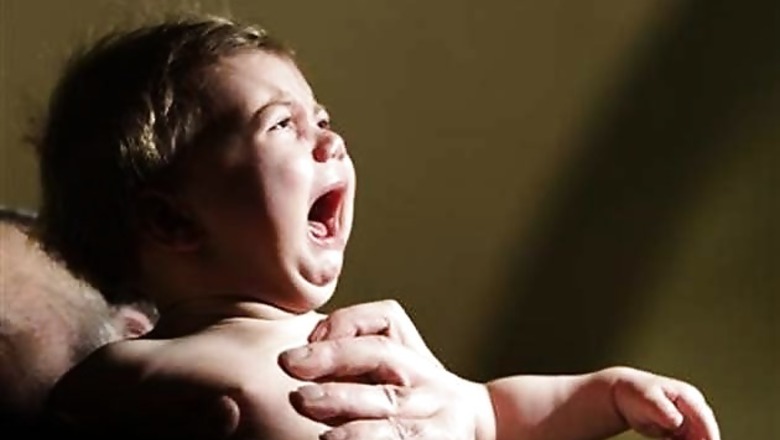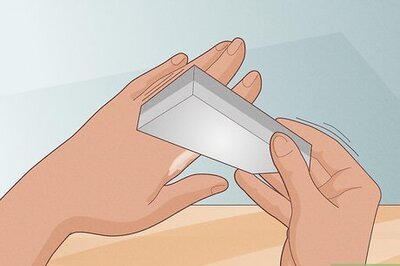
views
London: Unborn babies 'practise' facial expressions of pain in the womb, according to a new study. Researchers from Durham and Lancaster Universities suggest that foetuses' ability to show a 'pain' facial expression is a developmental process which could potentially give doctors another index of the health of a foetus.
The study extends the findings of previous work demonstrating that the facial expressions of healthy foetuses develop and become more complex during pregnancy resulting in foetuses being able to show recognisable facial expressions.
The 4D scans of 15 healthy foetuses showed that they develop from making very simple one-dimensional expressions at 24 weeks, such as moving their lips in order to form a 'smile', to complex multi-dimensional expressions which can be recognised as 'pain' expressions, by the time the mother is 36 weeks into her pregnancy.
The researchers suggest this is an adaptive process which enables the unborn baby to prepare themselves for life after birth when they have to communicate, for example if they feel hungry or uncomfortable, by making grimaces or crying. The researchers used the video footage of 4D scans, observing repeatedly the facial expressions of eight female and seven male foetuses from the second to third trimester (24 to 36 weeks) of pregnancy.
Foetuses observed at 24 weeks gestation rarely showed a combination of facial movements which make up a 'pain face', such as lowering the eyebrows, wrinkling the nose and stretching the mouth. However, by 36 weeks gestation, a combination of at least four movements was seen rather more frequently, giving the impression that these older foetuses were capable of making a pain face.
"It is vital for infants to be able to show pain as soon as they are born so that they can communicate any distress or pain they might feel to their carers and our results show that healthy foetuses 'learn' to combine the necessary facial movements before they are born," lead researcher Dr Nadja Reissland, of Durham University's Department of Psychology, said.
"This suggests that we can determine the normal development of facial movements and potentially identify abnormal development too. This could then provide a further medical indication of the health of the unborn baby. "It is not yet clear whether foetuses can actually feel pain, nor do we know whether facial expressions relate to how they feel.
"Our research indicates that the expression of foetal facial movements is a developmental process which seems to be related to brain maturation rather than being linked to feelings," Reissland said. The study was published in the journal PLOS ONE.




















Comments
0 comment